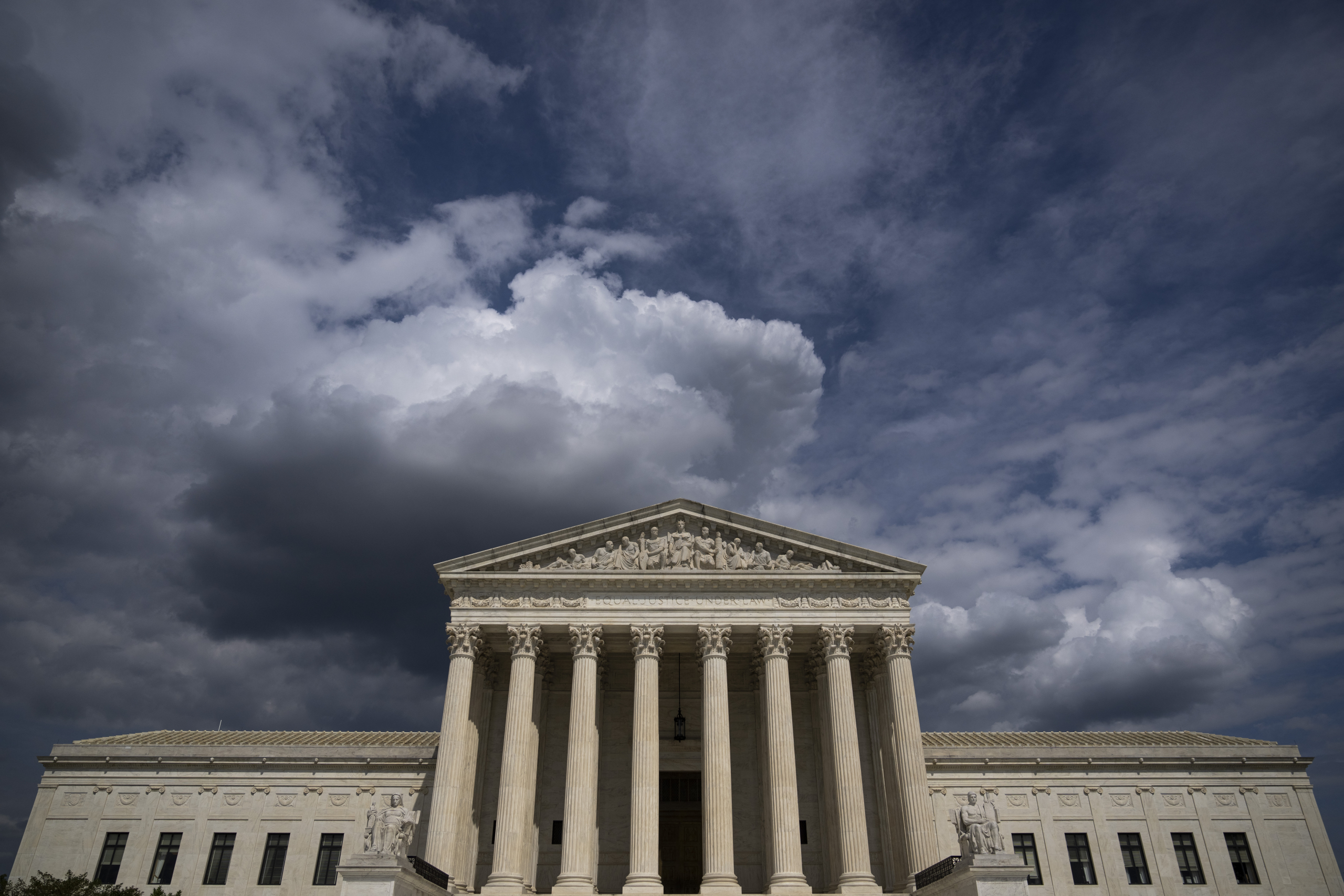In May, the U.S. Supreme Court announced it would take up an appeal to a ruling striking down a Mississippi abortion ban. Through its Attorney General Lynn Fitch, the state of Mississippi is now going a step further, asking the court to toss out Roe v. Wade altogether. Fitch’s brief to the Court, filed this week, says plainly, “… the case for overruling here is overwhelming. Roe and Casey are egregiously wrong. They have proven hopelessly unworkable.”

(Photo by Drew Angerer/Getty Images)
Mississippi v. Jackson Women’s Health Organization is now positioned as the best chance pro-lifers have at overturning the right to abortion in a generation. As Liberty Nation explained in May, “Jackson, the only abortion provider in Mississippi, filed a challenge to the new Gestational Age Act the day it was signed,” and was backed up by district and appellate courts. Now that it has reached the Supreme Court, the case may have more far-reaching consequences than anticipated.
The Constitutionality of Abortion
When the Supreme Court takes a case, it does so to resolve a question presented. In the abortion universe, that usually means examining a specific law or policy to find whether it violates the abortion rights guaranteed by the Constitution. This doesn’t mean that a restriction on abortions is tested against the Constitution, but by Supreme Court precedent. In abortion law, that means the cases of Roe v. Wade and Planned Parenthood v. Casey, which combine to offer legal abortion on demand in the U.S.
It also means that the Supreme Court doesn’t generally consider whether previous cases were decided correctly but simply applies any new controversy to the existing precedent. This abortion case is very different and could lead to overruling Roe, opening the door to all manner of restrictions on abortion. Such limits may include banning abortion with criminal penalties for women who seek abortions and/or abortion providers.
The Supreme Court will decide “[w]hether all pre-viability prohibitions on elective abortions are unconstitutional.” That’s the question presented in the new case from Mississippi. Attorney General Fitch has used the question to argue the Supreme Court must overrule Roe and Casey:
“Roe and Casey are thus at odds with the straightforward, constitutionally grounded answer to the question presented. So the question becomes whether this Court should overrule those decisions. It should. The stare decisis case for overruling Roe and Casey is overwhelming.”

(Photo by Greg Nash-Pool/Getty Images)
Will Precedent Be Reversed?
The editors of National Review argued in an op-ed the Supreme Court should overturn Roe and Casey, saying the rulings “ignored text, structure, history — ignored the Constitution nearly completely — to pretend that abortion requires the federal courts to extend it special protection.” Four justices may very well have already taken this position. Because four members of the Supreme Court must agree to take a case, and because this case leaves open the real possibility of overturning abortion law in the U.S., the smart money bet is that four justices already plan to overturn precedent.
In her confirmation hearing, President Trump’s nominee to replace Ruth Bader Ginsburg, Amy Coney Barrett, refused to agree with Senator Amy Klobuchar (D-MN) that Roe was a super-precedent. The senator was trying to get a buy-in from the future justice that the Court’s landmark abortion cases deserved more respect than other Supreme Court judgments. Coney Barrett said the term super-precedent “define[s] cases that are so well settled that no political actors and no people seriously push for their overruling. And I’m answering a lot of questions about Roe, which I think indicates that Roe doesn’t fall in that category.”
~
Read more from Scott D. Cosenza.



